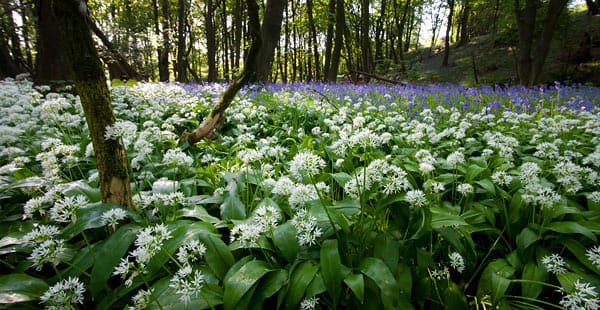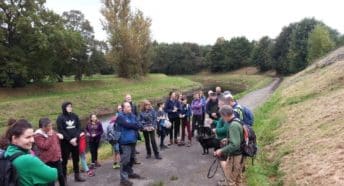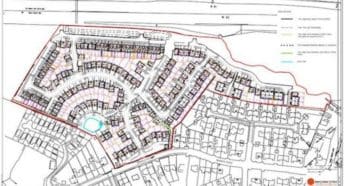Fylde Borough Affordable Housing SPD: CPRE’s view
CPRE urges Fylde Borough to look again at its definition of affordable housing, to ensure that its figures for housing need are accurate, and to encourage recording of brownfield sites to encourage the reuse of previously developed land.
CPRE was established in 1926 with the aim of ensuring everyone could access and enjoy the countryside. We believe that is as important now as it was then – that a beautiful, thriving countryside enriches all our lives, wherever we live.
Our countryside sustains us in every way. Its beautiful landscapes provide the food we eat and a haven for the nature and wildlife we love. It’s where many of us feel most alive. But it’s under threat – from pollution, litter, irresponsible development and a host of other pressures. The countryside doesn’t stand still. It’s always adapting and evolving. If it’s going to thrive, it needs our help now. Change in our countryside is necessary, but for it to be positive it must meet the needs of both rural and urban communities. We want a thriving countryside for everyone to enjoy – today and for generations to come.
Affordable Housing
The Government, in our view uses the wrong definition of affordable housing in the National Planning Policy Framework. It includes market starter homes that are only on offer at 80% of market value at the first point of sale. Thereafter they are not affordable, but whatever the market will pay.
We urge for more social and private rented properties that are affordable permanently. We have also seen ‘Right to Buy’ in rural places deplete the stock of register providers. In rural areas we think ‘Right to Buy’ should be scrapped.
Flawed Standard Method
The Government’s standard method is deeply flawed. It pushes housing growth into the countryside. It is based on an overly simplistic ‘supply and demand’ economic theory, ignoring the fact that houses are not used just as homes, but very often capital investments. The affordability ratio simply pushes houses to areas of high demand, irrespective of environmental capacity, high grade of farmland and threatens unnecessarily our rural areas.
We must have policies that achieve the Government’s advisory 10% Biodiversity Net Gain. Despite promises the Government has not delivered the mechanism for achieving BNG at 10% and it is incumbent on local planning authorities to have SPDs that provide a policy control. Most authorities do not have the enabling policy for this and it is so important in future they do. We have to embed policies that are good for our climate, biodiversity if we are to have healthy natural environments.
In our view, it is wrong to put the profit margin of developers, above building needed homes, including genuinely affordable ones, in the right places, where jobs and other facilities are located. The local authorities must plan for the people in the most sustainable way regarding the environmental limits of the area, and cater for the least well off to ensure we have balanced communities and homes for all.
There must be a policy wording that can prevent developers from so agreeing equitable affordable housing contribution at the time of the grant of permission, only to renege on these at a later date. We have repeatedly called to the Government to close the viability loophole that allows developers to put profits before needs of poorer households.
Fylde must cater for its aging population, with quality sheltered and supported housing, and also provide affordable homes for younger households in the needed tenure and size.
Reliance of out of date data
Furthermore, it is bad practice, to use out of date data, so it is illogical that the Government promotes it. ONS 2016 data is the best data set to utilise, perhaps even 2018 data when available. Generally, ONS 2016 shows fewer homes are required across Lancashire. In fact, soon Fylde might be able to rely on the ONS 2018 data, to inform the planning of housing.
Whatever, it is clear the Council should resist having housing requirements that are too high, otherwise it cannot achieve targets and will fall foul of the stringent Housing Delivery Tests, which leads to plans becoming out of date, and as a result more of our productive greenfields have to be released for development, with associated costs in terms of food and job security. We have observed many times in recent years a flurry of developer applications in Fylde, refused by the Council only to be later granted at appeal including on our highest grade farmland (Best and Most Versatile grades 1 and 2!)
A reality check in future planning is necessary. CPRE supports adequate housing for the people who need a home, particularly lower cost affordable housing options, including houses for rent. There is no evidence to show that the release of Green Belt or farmland provides the right type of housing, nor does it accelerate housing delivery, as often the land is often sold on with the planning permission and the uplift value extracted. The demands of developers should not be the only concern, but instead local economic, social and environmental good.
Brownfield
CPRE campaigns for urban concentration to better utilise previously developed, or brownfield, land in our existing settlements when homes are delivered. We advocate sustainable development, harnessing technology for cleaner energy, and reducing our demands to be compatible with climate change carbon budgets. We should reuse brownfield land to make the most of sites in central and accessible places, and not build out in rural places, which places an added burden of car dependency. Consequently, the existing built areas, which are most urban should have the most development, and require higher density with adequate green space and community facilities near to jobs. Preston and Blackpool ought to have more houses planned than rural hinterlands of Fylde and Wyre.
The NPPF Section 11 does seek to encourage more Brownfield reuse, and the identification of all brownfield land in the brownfield registers is important. CPRE is urging Government to invest more in our wasted Brownfield land. Blackpool and Preston need much needed investments as do the existing towns of Fylde and Wyre. It is possible that a more comprehensive search for previously used sites is necessary as regeneration should be at the heart of the Local Plan for Fylde. Having looked at the Brownfield Registers it appear some sites have been overlooked, or classed as ‘unsuitable’, when in reality they have potential that should be unlocked by relevant stakeholders. We would be interested in speaking to the relevant officers about this. We can mobilise our team of volunteers to help identify suitable housing sites. We have done this in Greater Manchester and Liverpool City Regions to good effect already finding some 100 hectares of additional brownfield land, not included in the Brownfield Registers.
In our view if more brownfield land was recorded and higher density development provides more housing, the need to build on countryside, particularly that afforded Green Belt and Open countryside Policy protection would be avoided.
Green Belt Creation
We think there is scope to create new Green Belt to limit urban sprawl and protect rural places that can be enjoyed by the people of Fylde and beyond.
Summary
We wish the local plan team well with the production of Local Plan and identification of an adequate supply of housing sites, especially including affordable housing in the mix. We hope the policies and allocations will best steer future sustainable development, and so the countryside and green spaces of Fylde are best protected and enhanced for the benefit of future generations. Our climate and biodiversity must be protected and the affordable housing strategy can achieve enough suitable affordable homes AND protect our natural environments.
We will continue to work with future Governments to have a planning system that is fit for purpose on all the issues we refer to above.






